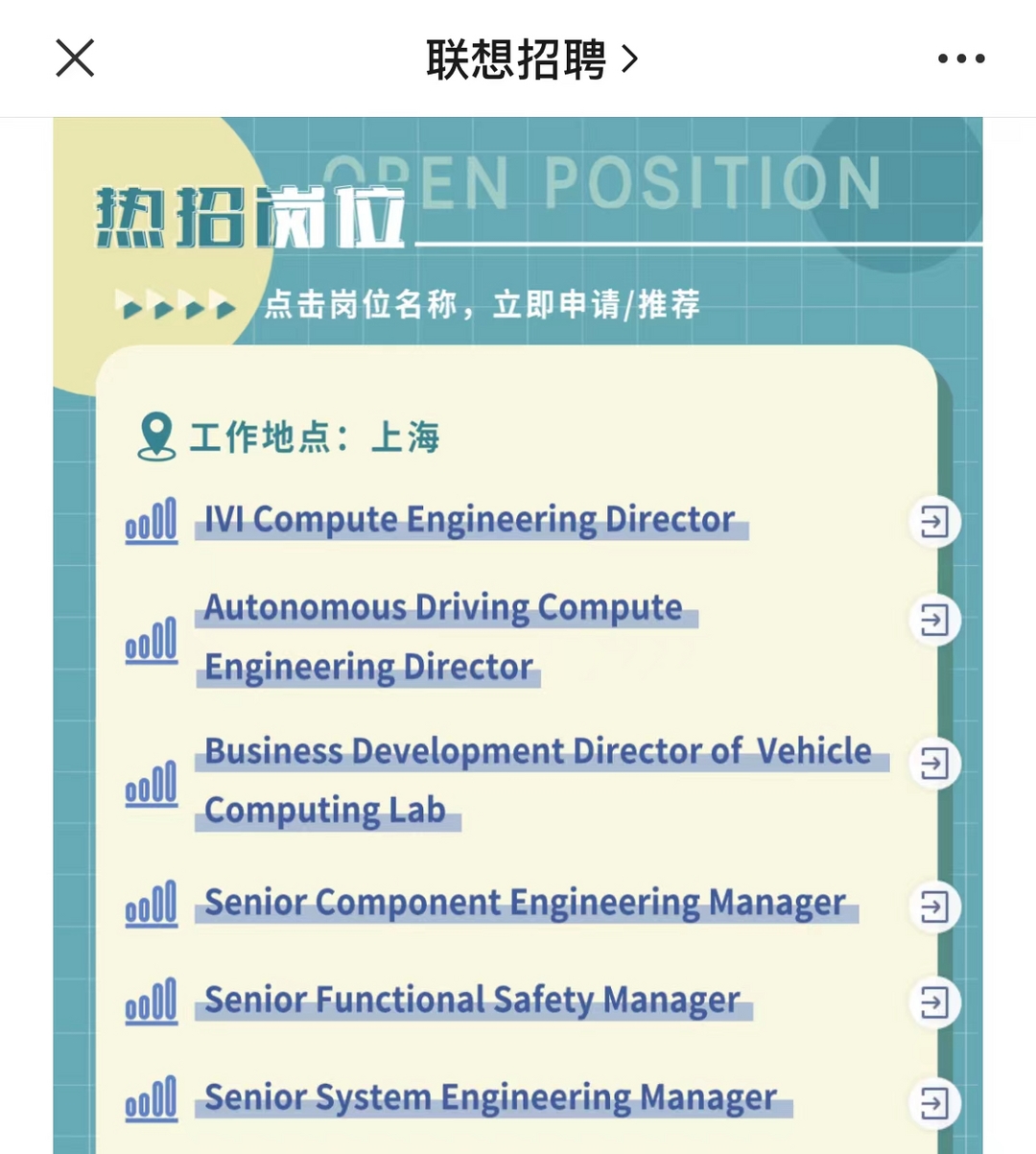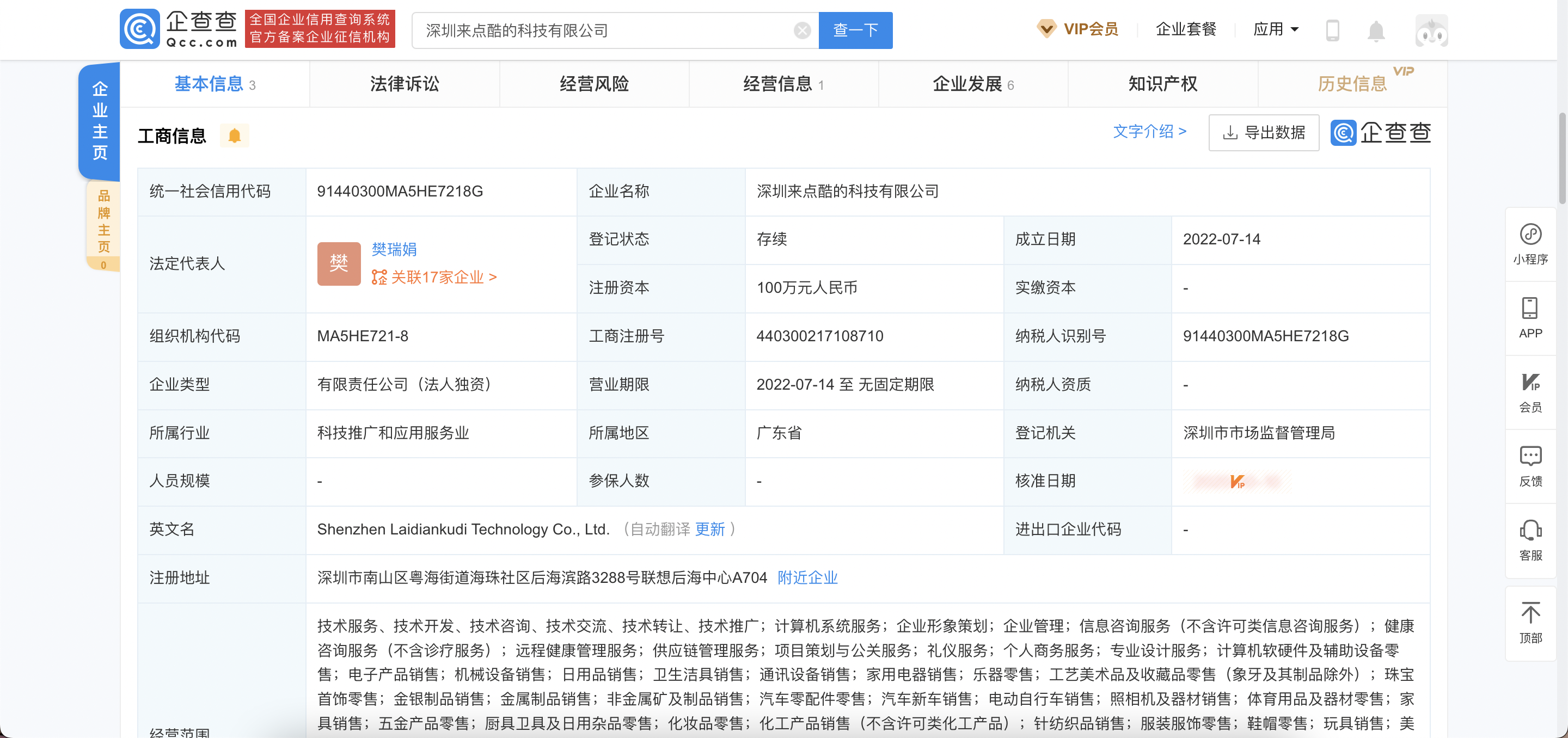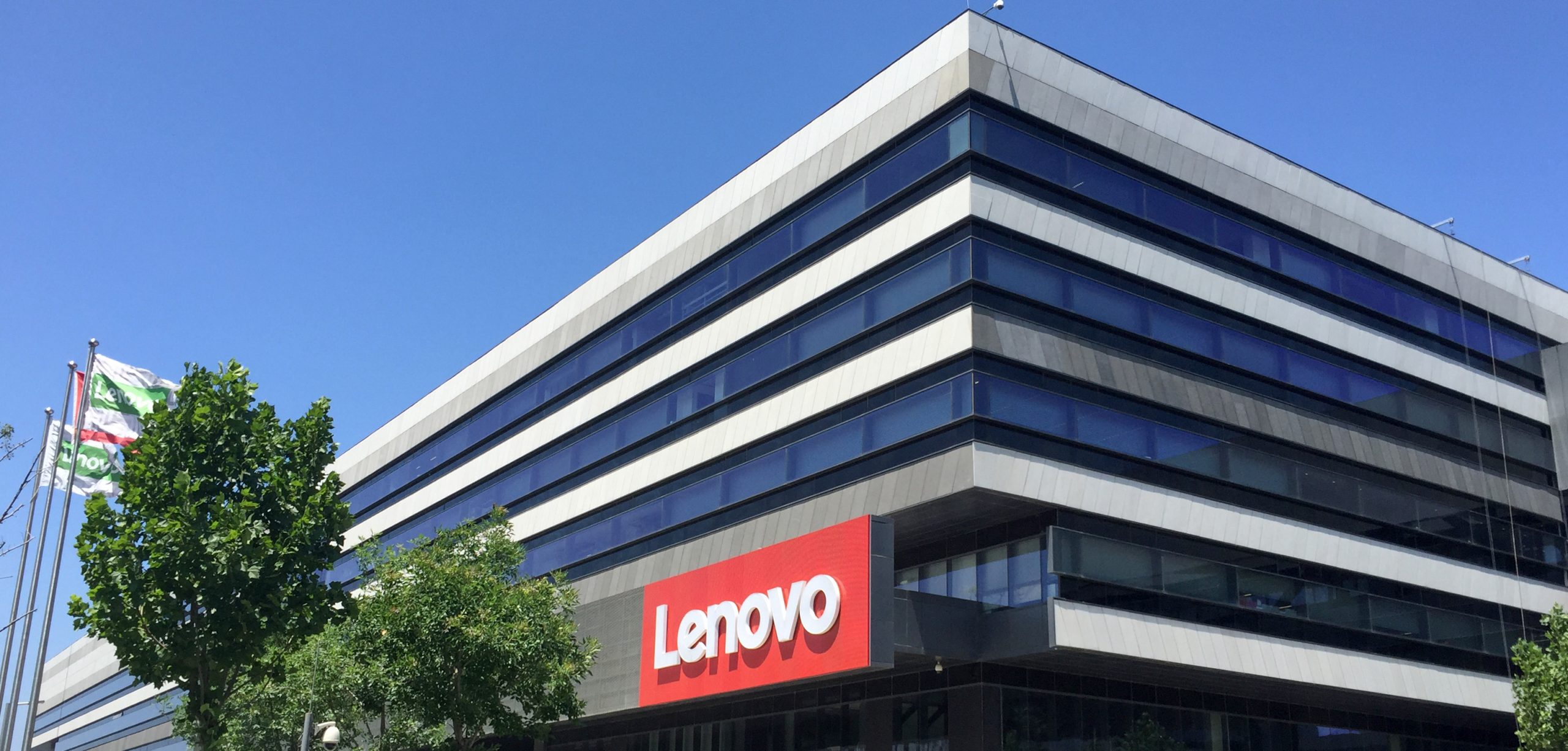Recently, in addition to many domestic new energy vehicle companies, major internet companies such as Huawei, Alibaba, Xiaomi, and Baidu have also joined the “car manufacturing” field in different ways. Now, Lenovo seems to be joining the fray.
Car Manufacturing Rumor
There have been leaks before that Lenovo Group has started intensive recruitment of automotive R&D personnel. Recently, Lenovo’s recruitment public account also released job positions for automotive R&D personnel, confirming the previous leak.


In this recruitment, a total of 16 positions were provided, including Director of Autonomous Driving Computing Engineering, Head of In-Vehicle Entertainment System, Senior Component Engineering Manager, and Vehicle Computing Hardware Architect. In addition, it also opened related positions such as the LR VC Lab, with all positions located in Shanghai.
In addition, according to QCC, Shenzhen Laidianku Technology Co., Ltd. was recently established, with Fan Ruijuan as its legal representative and a registered capital of RMB 1 million.
Its business scope includes: remote health management services, supply chain management services, retail of auto parts, sales of new cars, and sales of electric bicycles. The company is 100% owned by Beijing Lenovo Technology Co., Ltd..


According to the information on the official website of Lenovo Research Institute, Tang Xinyue is currently the head of the Car Computing Laboratory of the Lenovo Research Institute and the Vice President of Lenovo Group.
 # Tang Xinyue joined Lenovo Research Institute in 2022.
# Tang Xinyue joined Lenovo Research Institute in 2022.
Prior to joining Lenovo, she worked for well-known foreign and domestic companies such as Intel, iQiyi, and Visteon. Her last job was General Manager of Visteon Asia’s automotive business unit and leader of L2/L3 autonomous driving technology worldwide.
It is worth mentioning that Lenovo’s Chairman and CEO Yang Yuanqing stated in May last year that the company is determined not to make cars and will focus on intelligent transformation of existing businesses. However, he also stated that Lenovo has established partnerships with many automobile companies.
In addition to investment in research and development, Lenovo Group has also invested in the automotive and autonomous driving sectors through Lenovo Capital and Incubator Group. It has invested in companies such as CATL, NIO, AI chip company Cambricon, unmanned driving provider QCraft, high-performance computing chip company Black Sesame Technologies and Houmo Intelligence, and semiconductor company BYD.
Currently, Lenovo has not responded to these rumors.
Review
Based on the current information, it is unclear whether Lenovo will follow Xiaomi’s lead and directly manufacture cars, or take a route similar to Huawei in “helping car companies make good cars”.
Under the policy of vigorously developing new energy, the capital market has been very favorable for the new energy vehicle sector in recent years. If Lenovo joins the fray, it can also be considered “keeping up with the times”.
However, domestic carmakers have gradually achieved “overtaking on the inside track” in the new energy vehicle sector. Whether it is new contenders such as NIO and XPeng, or traditional manufacturers such as BYD, they have already achieved good results in the new energy vehicle sector.
With major domestic new energy vehicle manufacturers in the front, and foreign new energy vehicle manufacturers led by Tesla attacking from behind, it seems that Lenovo is a little late to the game if it still wants to directly manufacture cars.
This article is a translation by ChatGPT of a Chinese report from 42HOW. If you have any questions about it, please email bd@42how.com.
